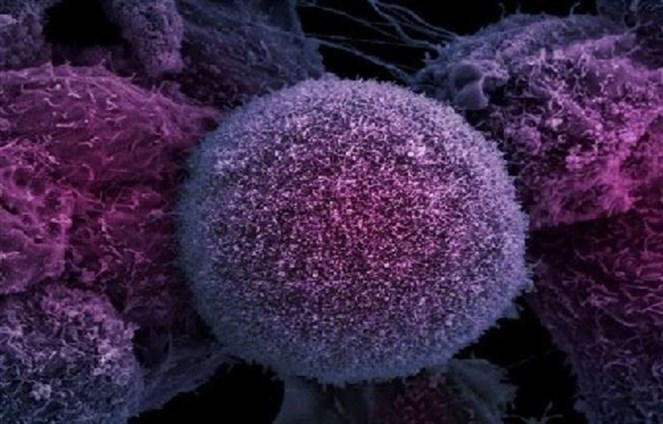
[ad_1]
Amjad Al Sharif –
Until now, doubts and indications about daily stress and cancer risk have been expressed, but a new Chinese study proves it.
Tension at work, in the family and at university has become one of the most prevalent diseases of recent years. Women are more tense than men. A study by the German health insurance company found that women's tension was 5.8% among female students and 3.45% among women and men.
Direct relationship
It has become certain that tensions are detrimental to the psychological state of the human being, reduce his physical immunity and make him more susceptible to various diseases. In most cases, however, science remains inactive as to how this effect is biologically biological.
A Chinese study indicates a direct relationship between persistent stress at work and in life with two types of cancer and its work on increasing the risk of cancer in a third case. The three cases are not "innocent" cancers, according to the study, as the case concerns cancers of the esophagus, colon and lung.
What is also important in the study is that stress in daily life, work and studies increase the risk of cancer, regardless of other risk factors, including smoking, abuse of alcohol, obesity, heredity, diet, lack of movement and other factors.
American and European statistics
Chinese researcher Tengting Yang from the Hanan People's Hospital completed his study based on statistics from people living in North America and Europe. The team published the study in the International Journal of Cancer in its latest issue.
The study ranked and analyzed health data for 280,000 people over a long period of their lives. The study aimed to establish a link between chronic stress in the lives of respondents and cancer rates among them.
The study found a clear relationship between high risk of esophageal and colon cancer and chronic stress in life, as well as a high risk of lung cancer. Yang Tengting calculated other cancer risk factors.
Between America and Europe
Chinese researchers have reported that the relationship between cancer tension in North America and Europe has changed, and that colon cancer in America is linked to stress in life and work, but not in Europe. The disease was reversed in the case of esophageal cancer because the stress relationship with this cancer was evident in Europe and was not in North America.
Yang and his team believe that many factors can explain the link between stress and cancer, but the mechanism for doing so is unclear. The causes of colon cancer in America and the spread and cancer of the esophagus in Europe, related to tension, are not clear either.
In addition, there was little correlation between work-related stress and daily living and other types of cancer, such as prostate, testicular and breast cancers. In any case, the Chinese team believes that it is necessary to continue studies to discover the link between stress and cancer.
Student life time
Work stress raises many psychological and physical illnesses among workers and employees in Germany, but is more prevalent among students. On this basis, university days are not only the most pleasant days of life, but also the most stressful.
The situation is more tense for students, because the tension is 20% higher than that of students (13%), according to a study conducted by the health insurance company. More importantly, 28% of students and 19% of students admit to having gone through a "hopeless state" at least once during the school years.
Students (33%) and women (41%) agreed that the intensity of the study, the stress of the exams and the lack of time were the reason for their stress. When students resort to alcohol to escape "tension", they resort to sedatives.
");
//}, 3000);
}
});
//$(window).bind('scroll & # 39;);
$ (window) .scroll (function () {
if (alreadyLoaded_facebookConnect == false) {
alreadyLoaded_facebookConnect = true;
// $ (window) .unbind (& # 39; scroll & # 39;);
// console.log ("loaded scroll");
(function (d, s, id) {
var js, fjs = d.getElementsByTagName (s)[0];
if (d.getElementById (id)) return;
js = d.createElement (s); js.id = id;
js.async = true;
js._https = true;
js.src = "http://connect.facebook.net/en_US/all.js#xfbml=1&appId=148379388602322";
fjs.parentNode.insertBefore (js, fjs);
} (document, 'script', 'facebook-jssdk'));
// pre_loader ();
// $ (window) .unbind (& # 39; mousemove & # 39;);
// setTimeout (function () {
// $ (# boxTwitter & # 39;) .html ("Tweets by @tayyar_org");
//}, 3000);
var scriptTag = document.createElement ("script");
scriptTag.type = "text / javascript"
scriptTag.src = "http://www.tayyar.org/scripts/social.js";
scriptTag.async = true;
document.getElementsByTagName ("head")[0].appendChild (scriptTag);
(function () {
$ .getScript ("http://www.tayyar.org/scripts/social.js", function () {});
});
}
});
//$(window).load(function () {
// setTimeout (function () {
// // add the returned content to a newly created script tag
// var se = document.createElement (& # 39; script & # 39;);
// se.type = "text / javascript";
// //se.async = true;
// se.text = "setTimeout (function () {pre_loader ();}, 5000);";
// document.getElementsByTagName (& # 39; body & # 39;)[0].appendChild (se);
//}, 5000);
//});
[ad_2]
Source link